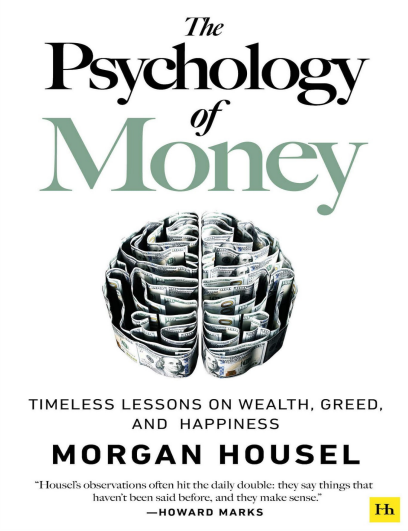
Do you know Ronald Read? A gas station janitor who quietly saved small sums for decades—and left $8 million to charity. His story isn’t about stock picks; it’s about time, restraint, and ignoring Wall Street’s noise. Money’s greatest paradox: The flashy rarely stay rich, and the boring often thrive. Why? Because finance isn’t math, it’s psychology. And your brain is your biggest asset… or liability.
 Summary
SummaryThe book, “Psychology of Money” by Morgan Housel explores the complex relationship between human behavior and financial success. Unlike traditional finance books that focus on formulas and market trends, Housel argues that managing money is less about hard math and more about soft skills—patience, humility, and emotional resilience. Through 19 short stories, he examines how psychology, personal history, and luck shape financial decisions more than technical knowledge.
Key themes include:
Luck & Risk – Outcomes are often beyond our control; humility is key.
Compounding – Small, consistent gains outperform short-term gambles.
Wealth vs. Riches – True wealth is unseen (savings, freedom), not lavish spending.
Tail Events – A few big successes (or failures) define most results.
Room for Error – Avoiding ruin matters more than maximizing returns.
Housel critiques societal myths (e.g., “frugality equals deprivation”) and highlights behavioral traps like envy, overconfidence, and short-termism. He emphasizes that financial success stems from adapting to uncertainty—not predicting it—and aligning money with personal values (e.g., independence, security).
The book’s strength lies in its relatable anecdotes (e.g., Ronald Read, a janitor who amassed $8M through patience) and counterintuitive wisdom (e.g., “The hardest financial skill is letting money sit”). It’s a refreshing take for readers tired of rigid investment advice, offering timeless principles over get-rich-quick schemes.